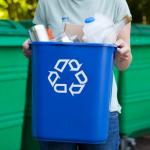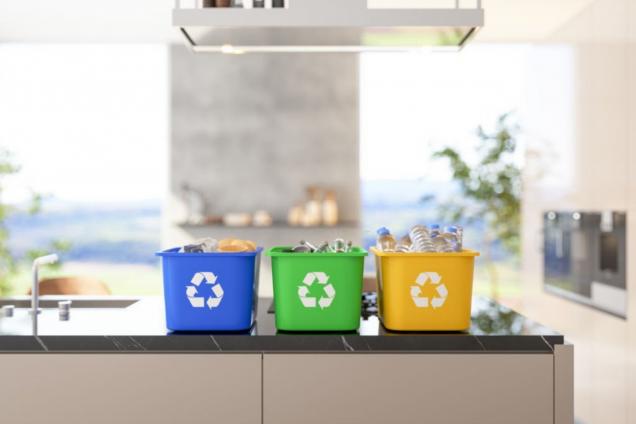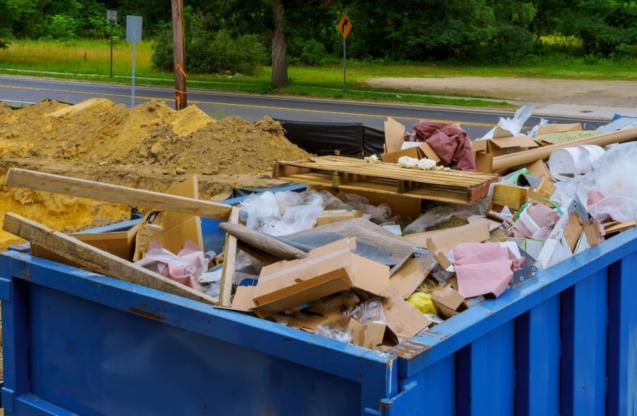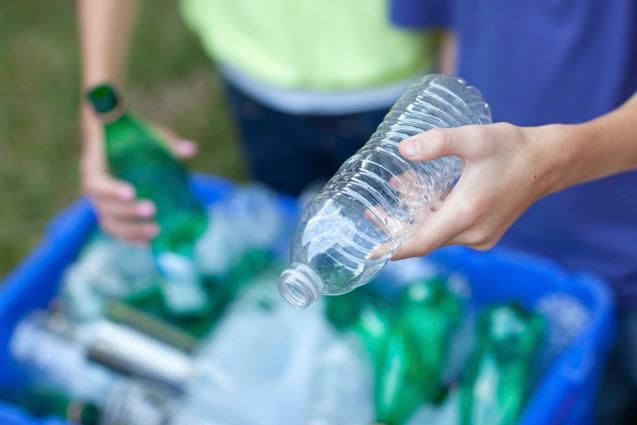
Top 20 Ways to Recycle at Home
By Pro Rubbish Removal Brisbane|July 07, 2022
Recycling Common Items
In this article we will explore the best ways to recycle at home to reduce unnecessary rubbish. Bu you may be wondering, why is recycling important?
Recycling is important because it helps to conserve our limited natural resources, reduces green house gas emissions, preserves raw materials, saves energy, reduces pollution, minimises waste in landfills and creates jobs. When we recycle materials, we reuse them instead of creating new products from scratch. This process requires far less energy than producing something new from raw materials, which reduces pollution and helps to conserve our limited natural resources.
Moreover, landfill space is becoming increasingly scarce, and when we fill up our landfills with recyclable materials, it makes it harder to find space for trash that can't be recycled. By recycling, we can help to reduce the amount of waste that goes into landfills, and this in turn can help to preserve our environment.
Recycling is also great for the economy as it creates jobs in the recycling industry and other related industries.
So, what can you do to help make a difference?
The Best Ways to Recycle
Start recycling at home! Here are some easy ways to get started:
1. Paper, Newspapers and Magazines
To recycle paper products, such as newspapers, magazines, phonebooks, and office paper, stack them together and fold them in half so that the front and back of each sheet are facing out. Then tie them together with a piece of string or use a rubber band to keep them together. You can also place recyclable paper products in a clear or colored plastic bag before placing them in your recycling bin.
2. Cardboard boxes
To recycle cardboard, remove any plastic or foil wrap and food residue. Break down the boxes so that they are flat and dry. Bundles of flattened cardboard can then be placed in your recycling bin.
3. Plastic bottles and containers
Such as water bottles, soda bottles, milk jugs, shampoo bottles, and detergent containers. Make sure that all the plastic is clean and dry before putting it in the bin.
4. Metal or aluminum cans
For metal recycling, rinse off any food or dirt and make sure that all the metal is free of oil or other liquids.
5. Glass bottles and jars
Just make sure that there are no broken pieces and that all the glass is cleaned off.
6. Electronics
Take them to a recycling center, or you can sell them to a recycler. Some recycling centers will pay you for your old electronics. You can also donate your old electronics to charity or second hand stores to be refurbished and resold. Many charities will recycle them for you, and some will even give you a tax deduction for doing so.
7. Batteries
If you have a lead-acid battery or nickel-cadmium battery, the best way to recycle it is to take it to a certified recycling center. These centers will safely dispose of materials in the battery so that it doesn’t contaminate the environment.
8. Printer cartridges
Remove the outer casing and any remaining toner or ink inside the cartridge using a lint-free cloth. Be careful not to touch the electrical contacts on the cartridge, as this could damage them. Once the cartridge is clean, you can place it in the recycling bin. Alternatively contact a local specialist like Planet Ark.
9. Light bulbs
Remove the metal filament from the glass and then recycle the metal separately. The glass can either be recycled or thrown away.
10. Styrofoam packaging
Polystyreene is a problematic material that takes hundreds of years to breakdown in landfill. Contact a specialist like this company to help dispose of it correctly. Or you can use them to make toy houses for kids or stuff bean bags.
11. Recycle your plastic bags
No need to throw away old plastic bags, simply clean them and store them for reuse.
12. Recycle your food scraps
Use old foodscraps as compost to grow vegetables in yourt garden.
13. Garden and Backyard waste
Don't pay someone to throw away away leaves, grass clippings or kitchen scraps when you can use them to yield nutrient rich soil. Buy a simple composter to help dispose of yard waste.
14. Clothing
Give your old clothes to a charity store or second hand clothes shop. You can also ask friends or family if they can re-use the clothes. Moreover you can cut them up and make rags for cleaning or even stuff cushions.
15. Shoes
Donate old shoes to the needy.
16. Motor oil
Find a recycling center that accepts used motor oil. You can typically find these at automotive stores or repair shops.
17. Cooking oil
You can actually re use cooking oil. Pour the old oil into a safe container and reuse again at a later date.
18. Rainwater
Consider purchasing a rainwater tank to store fresh water from rainfall.
19. Greywater
Use for irrigation, watering plants or in toilets.
20. Reduce, reuse, and recycle in all aspects of your life!
Check out your local recycling center for more ideas on how to recycle at home!
Conclusion
Recycling is a great way to reduce your environmental impact and help conserve our planet's resources. By recycling at home, you can recycle paper, plastic, glass, and metal products.
It also supports the development of new green technologies. So by creating new jobs and strengthen the economy, it's definitely the right thing to do!
There are also some things that you can't recycle at home like electronics and batteries. So be sure to check with your local recycling center to see what they can and can't take.
In this article we will explore the best ways to recycle at home to reduce unnecessary rubbish. Bu you may be wondering, why is recycling important?
Recycling is important because it helps to conserve our limited natural resources, reduces green house gas emissions, preserves raw materials, saves energy, reduces pollution, minimises waste in landfills and creates jobs. When we recycle materials, we reuse them instead of creating new products from scratch. This process requires far less energy than producing something new from raw materials, which reduces pollution and helps to conserve our limited natural resources.
Moreover, landfill space is becoming increasingly scarce, and when we fill up our landfills with recyclable materials, it makes it harder to find space for trash that can't be recycled. By recycling, we can help to reduce the amount of waste that goes into landfills, and this in turn can help to preserve our environment.
Recycling is also great for the economy as it creates jobs in the recycling industry and other related industries.
So, what can you do to help make a difference?
The Best Ways to Recycle
Start recycling at home! Here are some easy ways to get started:
1. Paper, Newspapers and Magazines
To recycle paper products, such as newspapers, magazines, phonebooks, and office paper, stack them together and fold them in half so that the front and back of each sheet are facing out. Then tie them together with a piece of string or use a rubber band to keep them together. You can also place recyclable paper products in a clear or colored plastic bag before placing them in your recycling bin.
2. Cardboard boxes
To recycle cardboard, remove any plastic or foil wrap and food residue. Break down the boxes so that they are flat and dry. Bundles of flattened cardboard can then be placed in your recycling bin.
3. Plastic bottles and containers
Such as water bottles, soda bottles, milk jugs, shampoo bottles, and detergent containers. Make sure that all the plastic is clean and dry before putting it in the bin.
4. Metal or aluminum cans
For metal recycling, rinse off any food or dirt and make sure that all the metal is free of oil or other liquids.
5. Glass bottles and jars
Just make sure that there are no broken pieces and that all the glass is cleaned off.
6. Electronics
Take them to a recycling center, or you can sell them to a recycler. Some recycling centers will pay you for your old electronics. You can also donate your old electronics to charity or second hand stores to be refurbished and resold. Many charities will recycle them for you, and some will even give you a tax deduction for doing so.
7. Batteries
If you have a lead-acid battery or nickel-cadmium battery, the best way to recycle it is to take it to a certified recycling center. These centers will safely dispose of materials in the battery so that it doesn’t contaminate the environment.
8. Printer cartridges
Remove the outer casing and any remaining toner or ink inside the cartridge using a lint-free cloth. Be careful not to touch the electrical contacts on the cartridge, as this could damage them. Once the cartridge is clean, you can place it in the recycling bin. Alternatively contact a local specialist like Planet Ark.
9. Light bulbs
Remove the metal filament from the glass and then recycle the metal separately. The glass can either be recycled or thrown away.
10. Styrofoam packaging
Polystyreene is a problematic material that takes hundreds of years to breakdown in landfill. Contact a specialist like this company to help dispose of it correctly. Or you can use them to make toy houses for kids or stuff bean bags.
11. Recycle your plastic bags
No need to throw away old plastic bags, simply clean them and store them for reuse.
12. Recycle your food scraps
Use old foodscraps as compost to grow vegetables in yourt garden.
13. Garden and Backyard waste
Don't pay someone to throw away away leaves, grass clippings or kitchen scraps when you can use them to yield nutrient rich soil. Buy a simple composter to help dispose of yard waste.
14. Clothing
Give your old clothes to a charity store or second hand clothes shop. You can also ask friends or family if they can re-use the clothes. Moreover you can cut them up and make rags for cleaning or even stuff cushions.
15. Shoes
Donate old shoes to the needy.
16. Motor oil
Find a recycling center that accepts used motor oil. You can typically find these at automotive stores or repair shops.
17. Cooking oil
You can actually re use cooking oil. Pour the old oil into a safe container and reuse again at a later date.
18. Rainwater
Consider purchasing a rainwater tank to store fresh water from rainfall.
19. Greywater
Use for irrigation, watering plants or in toilets.
20. Reduce, reuse, and recycle in all aspects of your life!
Check out your local recycling center for more ideas on how to recycle at home!
Conclusion
Recycling is a great way to reduce your environmental impact and help conserve our planet's resources. By recycling at home, you can recycle paper, plastic, glass, and metal products.
It also supports the development of new green technologies. So by creating new jobs and strengthen the economy, it's definitely the right thing to do!
There are also some things that you can't recycle at home like electronics and batteries. So be sure to check with your local recycling center to see what they can and can't take.



